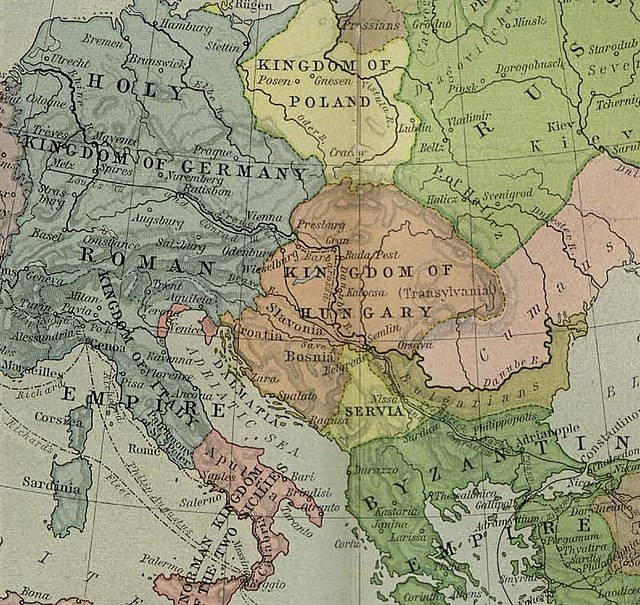Hungarian irredentism or Greater Hungary are irredentist political ideas concerning redemption of territories of the historical Kingdom of Hungary. Targeting at least to regain control over Hungarian-populated areas in Hungary's neighbouring countries. Hungarian historiography uses the term "Historic Hungary". "Whole Hungary" is also commonly used by supporters of this ideology.
Kingdom of Hungary (shown in brown) around 1190 AD.
Irredentism is one state's desire to annex the territory of another state. This desire can be motivated by ethnic reasons because the population of the territory is ethnically similar to the population of the parent state. Historical reasons may also be responsible, i.e., that the territory previously formed part of the parent state. However, difficulties in applying the concept to concrete cases have given rise to academic debates about its precise definition. Disagreements concern whether either or both ethnic and historical reasons have to be present and whether non-state actors can also engage in irredentism. A further dispute is whether attempts to absorb a full neighboring state are also included. There are various types of irredentism. For typical forms of irredentism, the parent state already exists before the territorial conflict with a neighboring state arises. However, there are also forms of irredentism in which the parent state is newly created by uniting an ethnic group spread across several countries. Another distinction concerns whether the country to which the disputed territory currently belongs is a regular state, a former colony, or a collapsed state.

Image: Kurdish inhabited area by CIA (1992) box inset removed


